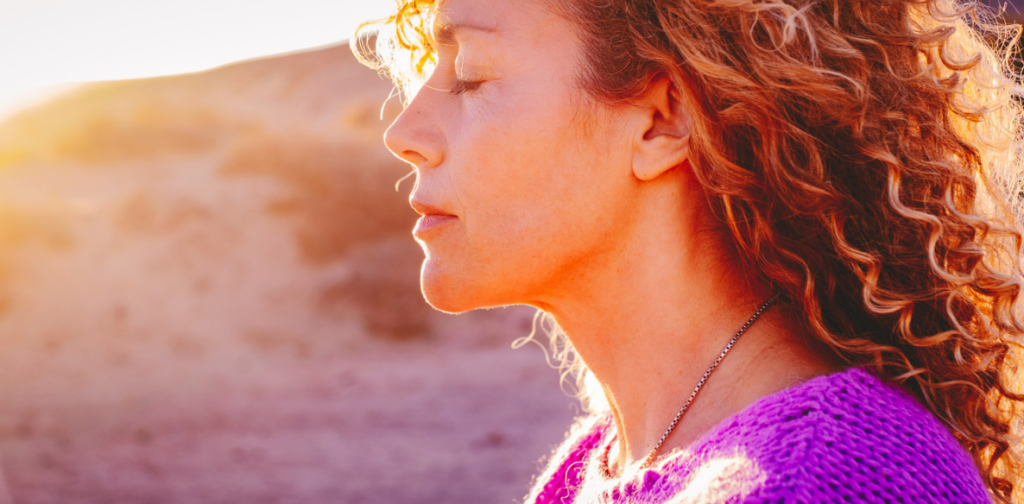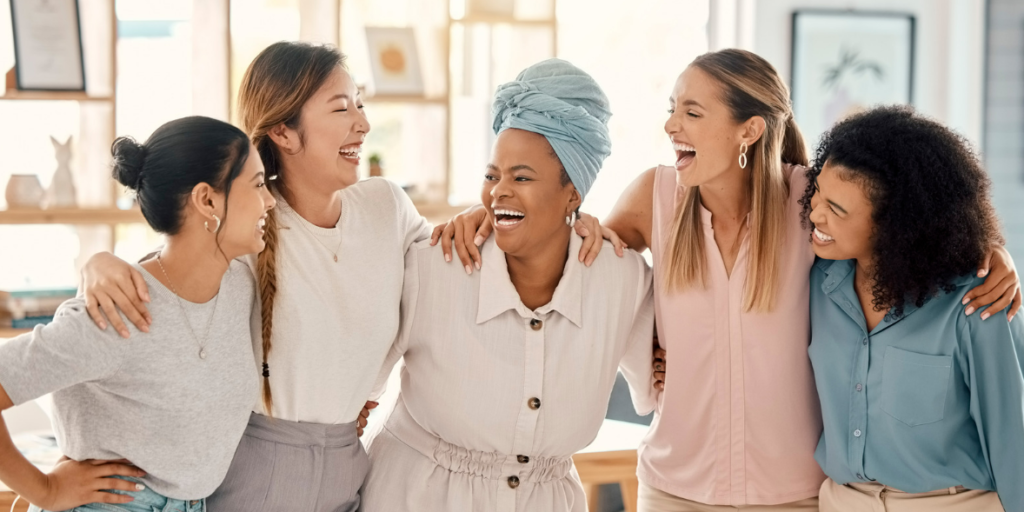Interview with Rosita M. Perez
In this episode, we will uncover 3 keys:
- Navigating Betrayal: Understanding the Impact and Moving Forward
- Empowering Women Through Faith and Practical Tools
- Overcoming Self-Doubt and Embracing True Self-Worth

A Podcast Transcription
Episode 41: It’s okay to not be okay! Self-discovery coach Rosita M. Perez
Intro
Odiva Vasell: (00:43)
Oh, my fabulous Fempreneurs! I am so excited to have you join us today as we have a wonderful, enlightening interview with Miss Rosita Perez, a woman after my own heart because she has a heart for midlife women who are on the journey of self-discovery. And we’re going to learn more today about why that journey of self-discovery is key for women going into their midlife years. Welcome, welcome, Rosita.
Rosita Perez: (01:24)
Odiva, thank you so much for having me here. I’m so excited to talk about this. Let’s roll.
Odiva Vasell: (01:37)
Today, I had to remember to press the record button because we were talking and we were just really understanding the wavelength, a similar wavelength of how self-discovery is so important. And let’s talk about your journey for self-discovery. I’d also like to add that before we press the record button, I was speaking about, and I didn’t finish. I was speaking about my heart goes out to multicultural women who have worked so hard in industry and how I’ve worked with those women who didn’t want to speak up because of accent or they’re just not confident in their English ability, and they had so many credentials and so many qualifications, and there they are in the boardroom. There they are, leaders and heads of divisions and companies, but they still feel that lack of confidence or a little insecurity, and it happens to all of us. So tell me a little bit about your heart and how you got on this journey for helping women self-discover themselves.
Navigating Betrayal: Understanding the Impact and Moving Forward

Rosita Perez: (03:11)
Okay, first of all, that story just touched my heart because so many of us women, especially in midlife, are struggling because we are not sure of who we are. So we fall back into what we know. So what we know is the negative self-talk. What we know is the self-doubt and the barriers. And there’s a part of us that knows logically, we know we’re the boss. Got it together. We know on paper. But we cannot present that confidence that we feel. So my heart goes out to women who are in the dark of understanding their beautiful self. Like, we are all uniquely fashioned. We all have gifts that another woman may not have. So when we don’t accept our own internal beauty, we cannot exude it externally.
Odiva Vasell: (04:27)
Yeah, powerful.
Rosita Perez: (04:32)
So that’s what self-discovery is all about.
Odiva Vasell: (04:34)
Yes. And I’ll tell you, one of the things that is brilliant that I’ve noticed on this journey is that we are good at seeing that beauty in another woman. We can look at her and say, she’s got it together. She has this going for her. I love her attitude, her smile, her warmth. I see all the good qualities in her. But to turn that around and see it in yourself, there’s so much, I think, programming over the years, whether we are aware of it or not, that tells us you can’t be too cocky or you can’t say positive things about yourself because it’s not safe.
Rosita Perez: (05:32)
Or it’s perceived negatively.
Odiva Vasell: (05:34)
It’s perceived negatively, yeah, you open yourself up to more attack.
Rosita Perez: (05:41)
But when you know who you are, then that just blows off your shoulder. And thank God that you have that mindset of wow, that woman. I admire this, this and this about her because some women will be haters. We have enough going on, ladies. Let’s band together versus fight each other. I mean, come on, let’s celebrate each other because nobody’s competing we all look different, we all have different gifts, just stay in your lane.
Odiva Vasell: (06:20)
And to address that part about the haters, they’ve been programmed. They don’t even know it. So I feel sympathy for them because they’re like, oh, she doesn’t look a certain way or talk a certain way. I’m going to just jump right in and say what I think everybody else is saying about her and not take a moment to just say, hey, let’s rejoice in her journey.
Rosita Perez: (06:50)
And you’re right, that is generational. When you grow up in that kind of environment, even as a little girl, and you hear the gossiping about another woman, and as a little girl, you may be like, I think she’s really pretty.
Odiva Vasell: (07:08)
Oh, yeah.
Rosita Perez: (07:09)
But your older group of women in your family are talking horrible about her. So you get a mixed message as a little child, and you grow up doing the same thing, right?
Odiva Vasell: (07:27)
Yes, that’s the training you’ve had. And so it takes a while to be able to come away from that. And then the self-love is when you start, as you said, when you start to start loving yourself, then you can see more of that beauty in the other women and not be a hater. Tell me, what brought you to this journey of self-discovery? What was your turning point?
Rosita Perez: (08:01)
Well, my turning point was I was in my second marriage, had been married 20 years, thought we were going to be together forever. Started to unravel and ended up getting divorced, is the short story. I was completely lost because my identity was tied into my marriage. I’m a wife, I’m a mom, I’m a stepmom, I’m a grandmother, all that stuff. So now I had to fall back and say, okay, well, who am I? And for me, I had done all the normal things we do to try to get over the pain. And this time around, I thought, no, I’m going to have to dig my heels in and develop a stronger relationship with my faith, which is God. And that’s when I started to really understand. I started to heal because I think I was mid-50s when I was going through this. So not only did I have to deal with the present, but I unpacked the past because all the things that happened, this childhood, infected all my choices that I made in my adulthood.
Odiva Vasell: (09:38)
And that is inspirational because when I think of all the women who never get to that point of realization that they are more than the roles that they take on and they just go through life with this heavy burden and then before you know it, life is over. But you in the mid-50s, came to this awakening point that’s so hopeful for all women that it’s possible.
Empowering Women Through Faith and Practical Tools

Rosita Perez: (10:13)
Yeah, and so as I’m going through my healing, and I had my faith, I used practical tools, I did the therapy, I did the coaching. I had a community of strong, faithful women who would help me along the path to not just help each other heal but to feel that love that doesn’t have to be earned by performance.
Odiva Vasell: (10:45)
That’s powerful. I just want to let that sink in. It doesn’t have to be earned by performance. Tell me more about that, let’s unpack a little bit more about that not feeling that you have to earn love by performing or doing.
Rosita Perez: (11:21)
Okay, so I think when I first realized that was I come from a huge family so I’m on the younger end, and I would see my older siblings who didn’t get good grades really get in trouble. So by the time I started going to school, I made sure that I got nothing less than a C. But something inside of me felt like I had to be the good girl. I had to perform well in school to be accepted and loved. And my parents did the best that they could with what they knew. I’m not blaming them at all. This is just a revelation of how it affected me. So that’s when I started feeling like, you can get love, but it’s performance-based, or even if you look a certain way. Right?
Odiva Vasell: (12:21)
Yes.
Rosita Perez: (12:24)
I grew up in the 70s. So you’ve got the Farrah Fawcett, the Raquel Welch, you’ve got all the bombshells and then the comparisons started coming in. Well, I don’t look like that. So I don’t measure up. So I have to look like that so I can be loved.
Odiva Vasell: (12:48)
That’s huge. That’s huge. Breaking that, I have to look like that so I can be love bondage, so to speak, is quite a high level of self-discovery, because the minute you turn on the television, radio, everything is programming the women that these are the people who are loved and this is how they look. And we just finished the Christmas season where I get to the point of like, I’m sick of it, where the Farrah Fawcett gets her man kind of programming. And I was like, when did this become, Christmas become about Valentine’s Day? And because I’m a caregiver and my mom loves these programs, so spending time with her means I’m watching this and it’s just like, oh my goodness. Not more of the same. But again, just now being, I just went 49 in the awareness of loving who I am, as I am.
Rosita Perez: (14:10)
Yes, that’s a huge point. Loving you as you are,
Odiva Vasell: (14:18)
that it’s okay to be nothing like the representation I see on television because nobody is.
Rosita Perez: (14:30)
I mean, the women on the magazine covers don’t even look like that.
Odiva Vasell: (14:34)
Yes!
Rosita Perez: (14:39)
If I had a team of people doing my hair, my makeup, airbrushing me, I’d look just like them.
Odiva Vasell: (14:47)
Yeah, it’s true. When you see regular women in the street, they look like regular women. And so this image, as you and I both, we do podcasts and we’re getting on social media, and the social media channels are promoting a certain way of looking that’s very popular. And I’m thinking, I am not going to be doing no dancing or no shaking of anything.
Rosita Perez: (15:24)
Yeah, I saw that too. And I thought, really? I got to dance. I hung up those heels years ago.
Odiva Vasell: (15:35)
Yes. So getting into a space, and this is also another part of my journey of knowing that the information that I put when I highlight women like yourself who are coaches and healers and just phenomenal fempreneurs, that this information will get to the people that need it, to the women and even men that need to hear how to self-love. So doesn’t matter if it gets 100 thousand, 10,000 likes. If it changes one life, I’m on the right track.
Rosita Perez: (16:21)
Yes. We are just seed planters.
Odiva Vasell: (16:25)
Yeah. Planting that seed. And so we also talked a little bit, we touched a little bit on getting out of the holiday funk.
Rosita Perez: (16:41)
Yes, that’s a whole mindset shift, right. Especially if you’re single. And you don’t have a significant other.
Odiva Vasell: (16:57)
Oh, is that what it is? Okay. Because I was thinking, well, I didn’t have to bake a turkey for dozens of guests or anything like that this year, so I’m one of the lucky ones. But, yeah, being single during the holidays, it is different.
Rosita Perez: (17:20)
Yeah. But again, that’s a mindset. For me, when I first was separated I have a group of people that I hang out with, and they wanted to do karaoke. I can’t initially because it was too many love songs, too many. And I knew that I wasn’t strong enough to deal with that. So I kind of politely let my folks know that I can’t. Probably for the next couple of years, I told them not be talking about I love you, I want to get back. I can’t. Yeah. So I had to learn how to take care of me, and that was part of taking care of me.
Odiva Vasell: (18:13)
That’s very wise. And I’ve noticed in the years as I get older, I don’t listen to R&B anymore. So a lot of the famous R&B singers that people are talking about, and especially in black culture, people are like, oh, this person released an album and this person is the hottest person. And I don’t know, because I long time ago cut off anybody singing about my life is over because I’m not with him. That kind of see me, validate me. Do you love me? Are you with her? No, I’ve cut that off years ago. So I totally understand where he didn’t want to go to karaoke. But I’m laughing because in my head, karaoke is actually rock songs in different languages.
Rosita Perez: (19:21)
In my brother’s household, it’s all R&B, 70s rock. So it’s a mixture. he used to sing in a band years way back when we were kids, and they do the Stylistics, and so I love those songs, but I needed to heal that pain that I was going through.
Odiva Vasell: (19:49)
Yes. And how did you get to the point of healing? You said you had some tips and some…
Overcoming Self-Doubt and Embracing True Self-Worth

Rosita Perez: (20:00)
Yes. So for me, what I had to do was be okay being alone. That was a huge shift for me because I was always used to being with somebody. So when I’m alone and I really had to trust God to just rebuild me, in a sense, to get back to the core of who I am, which is a masterpiece. I’m a masterpiece. So I would do exercises, like one of them was looking in the mirror and saying, “I Love You”. Like, looking straight in your eyes and saying, I love you. and sometimes that is very difficult to do when you are heartbroken. So that’s one exercise that I had to do. The other was just filling whatever I was listening to or watching that it be either a sermon or a topic that I was interested in that would help me to heal and then start implementing some of those things.
Odiva Vasell: (21:18)
Oh, I love that one.
Rosita Perez: (21:21)
Yeah. Because it’s not just you could hear all day long, but if you’re not taking the next step to implement then you’re going to stay stuck in that self-doubt cycle. And I had a community of women where we were going to a Bible study, and the topic was very painful because it was called betrayal and beyond so Odiva, there were easily 25 to 30 women there every Tuesday. And I looked around the room and I thought, wow, a lot of us are hurting. But I also was grateful that there was a place that we could go to to support each other, to cry with each other and just be that support that we needed.
Odiva Vasell: (22:21)
Okay. I want to reiterate these three steps that you talked about for anyone listening. Number 1, “being okay with not being okay”, because there’s so much— and I can go back to social media— there’s so much showing of happiness and our good times and our great pictures and smiley things that we forget that as humans, we’re going through a journey and life is going to do the ups and downs. And people, if there’s even a death or something traumatic happening in the family, people want you to just get over it or they say things like, “cheer up”. So we’re not allowing ourselves to feel all the emotions. So that was the one step of wisdom that you gave. The second one was, and I really like this, “feeding yourself”. And that connects to my resolution for 2024. Feeding yourself good food. Here, up here, where you need it most. So for you, it was sermons and just listening to things that fueled positivity in your life. That’s great. And the 3rd one, community, “A supportive community”.
Rosita Perez: (24:14)
Absolutely.
Odiva Vasell: (24:15)
Wow. And the name of that group was?
Rosita Perez: (24:19)
The Bible study was called Betrayal and Beyond.
Odiva Vasell: (24:23)
Wow. So just imagine, so many women at the same point in time of their lives were going through that, and they created a safe place for you to talk about that. And now on the other side of it, tell me more about that journey.
Rosita Perez: (24:53)
Odiva. It has been a journey, like, like you say, we’re all human. It’s not all butterflies and unicorns, right? There’s going to be days when I said this to my brother the other day that my name is Judy. Today I got an “atti-tudie”, you know, there’s going to be days where I’m going to have an attitude. It’s sad. And, you know, that’s just our emotions that we go through as humans. Where I am today is through the healing, through deepening my faith, integrating my faith with practical tools. I now have this joy from within, like, deep in my spirit, so it cannot be like, I can’t be pushed off of my rock of faith. Let me speak for me. When somebody. I’m kind of shaky already because I’m not clear on who I am. I’m not confident and accepting of the person, the woman I am. So somebody would say a remark, take it so personal, and that would knock me off my rock. And then I get emotionally immobilized, right? Because, oh, my God, they said this. I don’t have that anymore. Now I’m like, oh, okay, thanks for sharing your opinion. And I bring up that joy like, I am more than a conqueror. I am a masterpiece. And that person’s opinion, how they’re feeling, that is not my responsibility. And I welcome talking through it. Let’s talk through whatever it is that is going on. But I no longer become the surgeon for their issues.
Odiva Vasell: (26:56)
Yes. Other people’s opinion of you has nothing to do with you. Beautiful.
Rosita Perez: (27:06)
Yeah. So that joy, I might fall back sometimes, right? But I’m like, no, wait, hold on. No.
Odiva Vasell: (27:16)
Nice. And so I tell younger women, let’s say those that are in their 30s or 20s that might be listening to this, it’s a new day. Because this wisdom was not passed on to our generation. But now they’re quick learners. They can learn this now, and they can come to a place where, you know what? I don’t have to take on all these roles and responsibilities to be loved, and I don’t have to take on other people’s opinion of me to be confident in who I am.
Rosita Perez: (28:09)
Yes, we shape who we are. For me, my faith shapes who I am. And I stay constant to that because everybody’s going to have a different opinion. Right. I mean, I’ve heard people say, you either like me or you don’t and be okay with it. But you’re right, the younger women don’t necessarily have that benefit. Though I’ll have to say. Let me back up. I’ll have to say the plethora of information that is online, the awareness of self-care and all that.
Odiva Vasell: (29:01)
Mental health. Yes.
Rosita Perez: (29:02)
It’s so much bigger than it ever has been. We’re I think the baby boomers were the last generation, but from then on, I’m pretty sure from Yeah. Google is at your fingertips.
Odiva Vasell: (29:19)
There are things to come and you can find a lot of good knowledge to go into in Rosie’s podcast. Let me see if I can remember the name. Home. Finding home, is it?
Rosita Perez: (29:38)
Oh, it’s actually “A Woman’s Strength: Empowering Journeys From Struggles to Triumph”.
Odiva Vasell: (29:44)
Okay, and before we close, tell me a little bit about finding home. What does that mean?
Rosita Perez: (29:55)
Okay, so I am a realtor as well, so I help people find their way home, whether it’s a physical home or the core of who they are. So, finding the core, finding your way home means that when you understand who you are and you have that joy from within and you’re confident, truly confident. Not mask confident, truly confident, then you feel settled, you feel safe, and that is home.
Odiva Vasell: (30:31)
Wow. And that is my goal for all women, all generations. This is what we’re about, finding your home in here. No one can take it away.
Rosita Perez: (30:50)
Nobody and nothing.
Odiva Vasell: (30:54)
Thank you so much for joining us today, Rosie. Thank you. I’m nicknaming you Rosie.
Rosita Perez: (31:05)
I’ve gotten Rosetta Rosarita.
Odiva Vasell: (31:10)
You are a Rose. Thank you again.
Rosita Perez: (31:16)
Thank you. I appreciate it.
[music]
Conclusion
In summary, we’ve gained valuable insights from Rosita M. Perez on healing and self-discovery after betrayal. As the founder of Moving Forward for Life, she specializes in empowering women to overcome challenges and find their inner strength. Rosita emphasizes three important keys: being open, blending faith with practical tools, and building confidence. Her message about finding home within ourselves resonates deeply, inspiring us to embrace our uniqueness and live authentically. With Rosita’s guidance, women can navigate life’s ups and downs with courage and resilience.